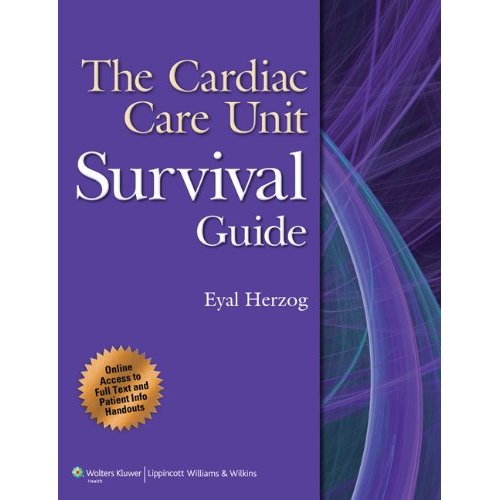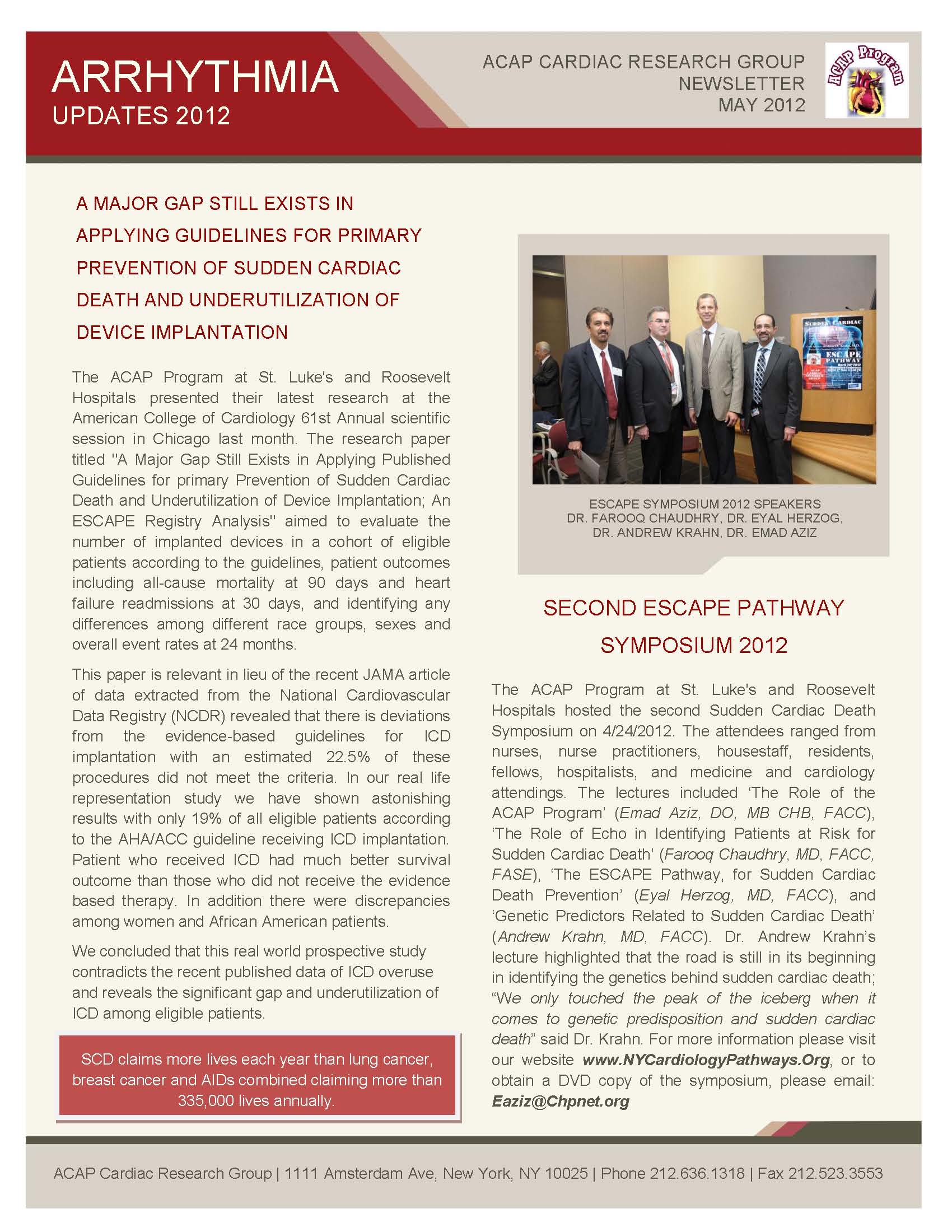

ACAP Book Publications
Our New Book
The Cardiac Care Unit Survival Guide
Eyal Herzog, MD
This book is geared toward cardiologists, trainees, and housestaff --anyone
who rotates or practices in the CCU--who must grasp the subtleties when
treating patients in a cardiac care unit. It is organized in a way to help
you understand the simplified pathophysiology of the disease, the diagnosis
modalities, the initial critical care management in the CCU, the clinical
care in a step down unit and plan for discharge therapy.
Dr. Herzog has developed unified pathways for the management of patients
presenting with acute chest pain or its equivalent, acute heart failure,
atrial fibrillation and flutter, syncope, cardiac arrest, hypertension and
hyperglycemia. Algorithms and pathways for management are provided in each
chapter for easy implementation in any health care system. In addition,
because specialized units are frightening to the patients and their
families, there is a section in each chapter on what the patient and family
need to know, that encompasses a capsulated explanation of the condition and
treatment management.
Paperback: 480 pages
Publisher: Lippincott Williams & Wilkins; 1 edition (March 26, 2012)
Language: English
ISBN-10: 1451110472
ISBN-13: 978-1451110470
|
Acute Coronary Syndrome |
Echocardiography in Acute Coronary Syndrome |
|
|
Mun K. Hong, MD ; Eyal Herzog, MD |
Eyal Herzog, MD ; Farooq A. Chaudhry, MD | |
 |
 |
|
|
Acute coronary syndrome (ACS) affects millions of patients
annually and requires immediate diagnosis and therapy. Critically, given the
aging global population, ACS is set to become an even greater medical problem,
not only for the emergency room and cardiology physicians, but for all
specialists treating the older population at risk of ACS. Advances in the
treatment of ACS can justifiably be considered one of the great achievements of
modern medicine. The evolution of treatment strategies represents a remarkable
achievement, but there is an urgent need to educate those specialists treating
the high-risk population. This practical algorithm-based handbook addresses the
diagnosis and treatment of these patients and is designed for the medical
personnel involved in the triage and management of ACS patients. |
Coronary artery disease is the most commonly encountered problem in adult cardiology in the developed world. In the US, more than 70 million people are at risk for developing coronary artery disease (CAD) and it is responsible for almost 40% of all deaths each year. The reliable evaluation of patients with suspected ischemic heart disease is therefore critical to identifying those at risk for CAD. Initially used to detect pericardial effusions and cardiac tumors, the development of echocardiography as a dignostic tool has paralleled the progress made in acute coronary syndrome (ACS), and ACS is now the most common indication for echocardiography. Echocardiography in Acute Coronary Syndrome: Diagnosis, Treatment and Prevention details the role of echocardiography in diagnosing and managing ACS. It provides a practical approach using evidence-based pathways for prevention, rapid diagnosis and treatment of patients with acute coronary disease using echocardiography. Also included are a number of case scenarios encountered in everyday practice for which echocardiography had significant clinical impact making this a convenient reference for all involved in the management of these patients, from echocardiographers and cardiology clinicians to emergency room personnel, and internal medicine and cardiology trainees. Written for: Emergency room physicians (both physician and non-physician staff), internal medicine physicians and trainees, cardiology fellows, and practicing cardiologists, echo cardiologist and echocardiography technicians, also be useful as a teaching tool for ancillary personnel |
|
| 2008, Approx. 390 p.,
Softcover ISBN: 978-1-84628-868-5 |
2009, Approx. 290 p. 300
illus., 200 in color., Softcover |
